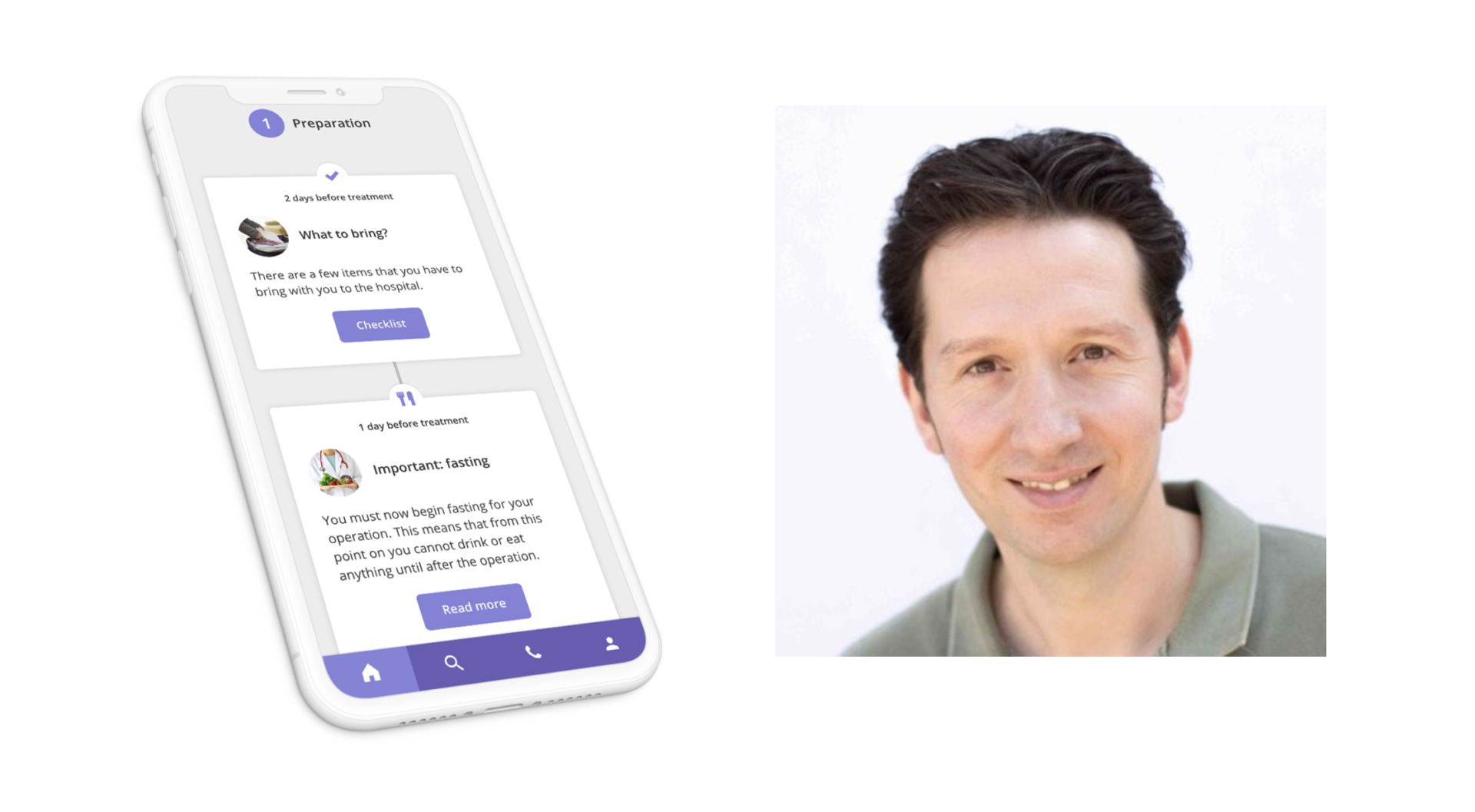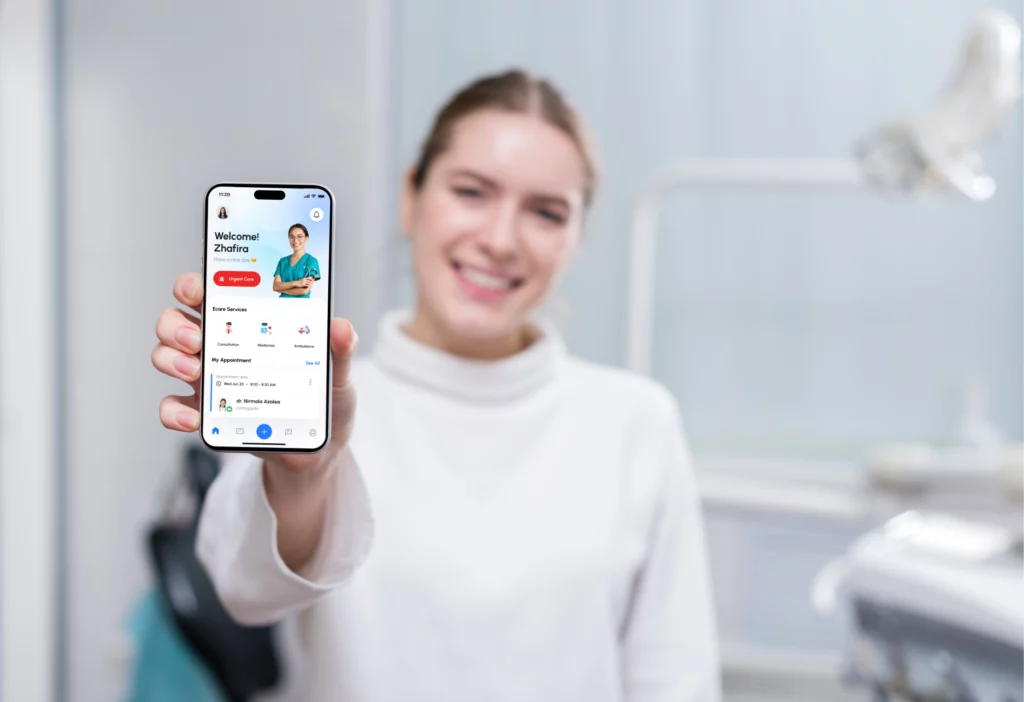The Future of Healthcare: Innovative Solutions with a Mobile App for Clinics
The Future of Health Care: Why Clinics Need a Mobile App Today
As the healthcare landscape continues to progress, clinics encounter placing pressure to adjust to patient assumptions for greater comfort and accessibility. The combination of mobile applications can offer as an essential method for boosting individual involvement and streamlining procedures.
Transforming Patient Assumptions
As the landscape of health care develops, client expectations are undertaking a substantial transformation. Today's clients are progressively looking for comfort, accessibility, and individualized treatment.
Moreover, people are becoming more informed and encouraged, commonly looking into conditions and treatments on-line prior to appointments. This enhanced understanding is paired with a demand for transparency in healthcare processes, including cost estimates and therapy alternatives. Because of this, suppliers are obliged to adapt by adopting digital tools that improve the person experience.
The expectation for reliable and timely interaction has never ever been greater, with many people taking into consideration responsiveness an essential element of quality care. mobile app for clinics. In this evolving landscape, healthcare companies should acknowledge these altering assumptions and take advantage of mobile applications to cultivate a more patient-centric strategy, guaranteeing that they not just satisfy yet go beyond the criteria established by today's enlightened consumers
Enhancing Client Interaction

Mobile applications promote interaction in between patients and health care providers, enabling real-time consultation organizing, tips for drug adherence, and direct messaging functions. These capabilities not only improve benefit however likewise develop a feeling of liability amongst patients. Furthermore, mobile apps can use academic web content customized to private requirements, assisting individuals better understand their conditions and treatment choices.
The combination of gamification elements within health care applications can likewise motivate clients to participate in healthy actions, strengthening positive lifestyle changes. By tracking progress and rewarding achievements, individuals are more likely to remain devoted to their wellness objectives. Eventually, improving person engagement through mobile applications brings about enhanced health results, better patient complete satisfaction, and a more collaborative healthcare experience. Facilities that prioritize this element will likely see a substantial effect on the top quality of treatment provided.
Simplifying Center Operations
Enhancing clinic procedures is necessary for improving process efficiency and maximizing patient care. The implementation of mobile applications can significantly minimize administrative worries, enabling doctor to concentrate much more on individual interactions. By automating consultation scheduling, individual check-ins, and invoicing procedures, centers can go to this web-site lessen wait times and boost general operational performance.
Mobile apps also help with real-time access to patient records, enabling healthcare professionals to make informed choices rapidly. This immediacy not just improves the top quality of care however likewise decreases the likelihood of errors connected with lost or obsoleted details. Leveraging mobile innovation supports a more well organized technique to taking care of individual follow-ups and therapy plans, ensuring that no critical actions are ignored.
This permits for timely replenishment and aids stay clear of disruptions in person care due to equip shortages. By integrating these performances right into their day-to-day operations, facilities can create a more effective and cohesive setting, inevitably leading to improved client end results and fulfillment.
Improving Communication Channels
Effective interaction is regularly mentioned as a keystone of high quality healthcare distribution. In today's fast-paced clinical atmosphere, mobile applications can substantially enhance communication networks between centers, patients, and health care companies. By incorporating mobile applications right into their procedures, facilities click to investigate can help with real-time interactions, making sure that individuals obtain prompt information regarding their visits, examination results, and treatment strategies.
Mobile applications also empower individuals to connect straight with their medical care teams via secure messaging attributes. next This direct line of communication promotes a sense of involvement and enables instant information of issues, which can cause much better adherence to treatment procedures. Press notifications can remind patients of upcoming consultations or drug routines, decreasing no-show prices and enhancing overall wellness results.

Remaining Competitive in Medical Care
In a rapidly progressing healthcare landscape, organizations have to prioritize advancement and flexibility to preserve an one-upmanship. The combination of mobile applications into medical care services is no more optional; it is crucial for clinics aiming to boost patient interaction, enhance procedures, and improve total solution distribution.
As people progressively count on digital platforms for health and wellness monitoring, clinics that stop working to embrace mobile modern technology threat falling back. A properly designed mobile application can supply features such as appointment scheduling, telemedicine examinations, and access to medical records, offering individuals with comfort and cultivating commitment.

Competitors are also spending in mobile services, so remaining ahead calls for constant renovation and remaining notified about technical developments. Facilities should not just carry out mobile applications but likewise participate in routine updates and refinements. Eventually, the successful combination of mobile technology will identify forward-thinking health care companies and set the criteria for patient-centric treatment in a digital globe.
Conclusion
In final thought, the integration of mobile applications in facilities is essential to deal with the developing landscape of client expectations. Ultimately, the tactical implementation of mobile apps represents an essential step towards supplying accessible and customized health care, thereby satisfying the requirements of today's empowered patients.
Inevitably, boosting individual interaction with mobile applications leads to enhanced health outcomes, better person complete satisfaction, and a more joint medical care experience.Mobile apps additionally assist in real-time access to patient documents, allowing medical care professionals to make informed choices quickly. In today's fast-paced medical setting, mobile applications can substantially improve interaction networks between centers, patients, and medical care suppliers.Mobile apps also encourage clients to connect directly with their medical care teams via protected messaging attributes. Ultimately, the calculated implementation of mobile apps stands for an important action toward providing available and individualized healthcare, therefore meeting the needs of today's equipped individuals.